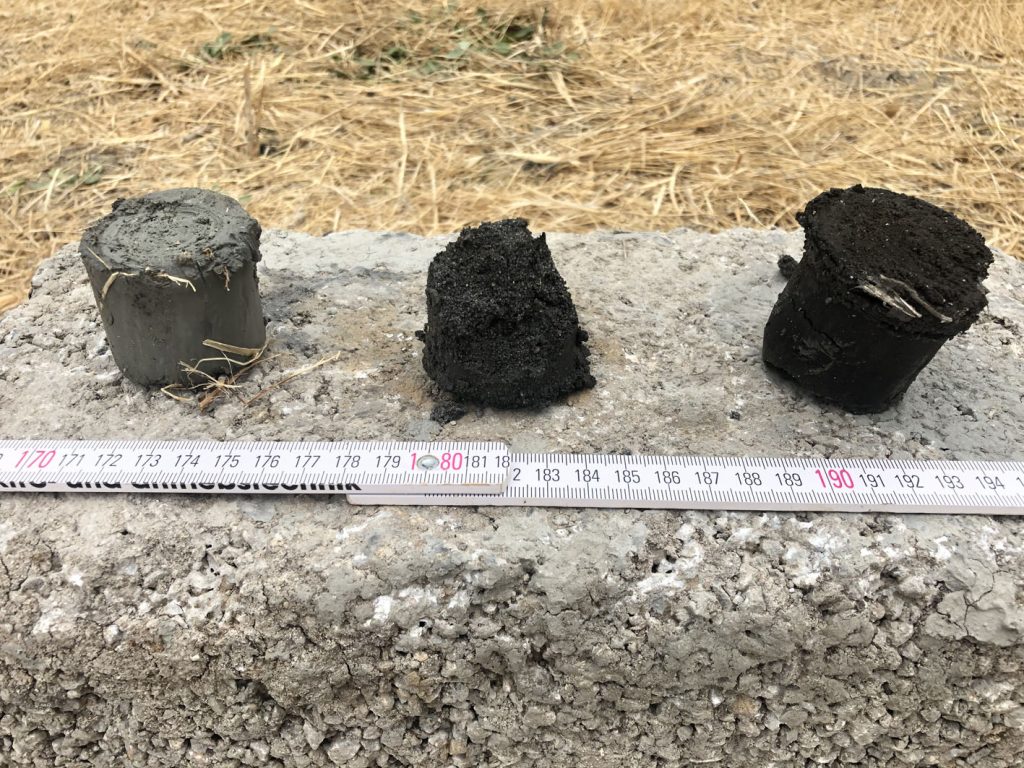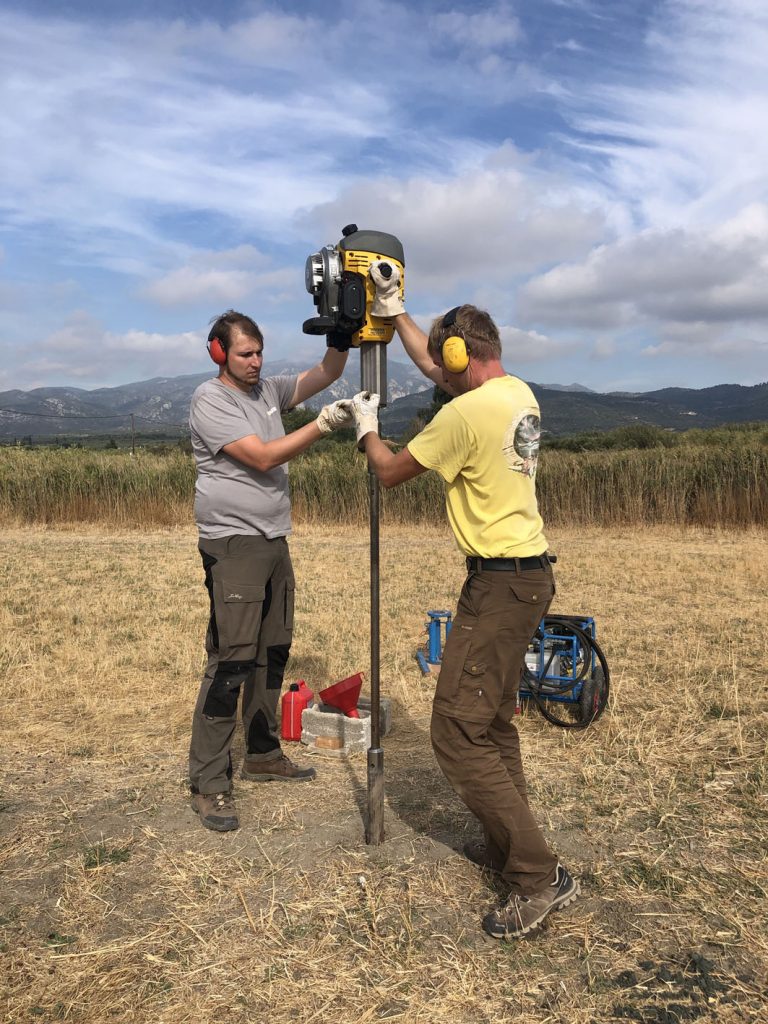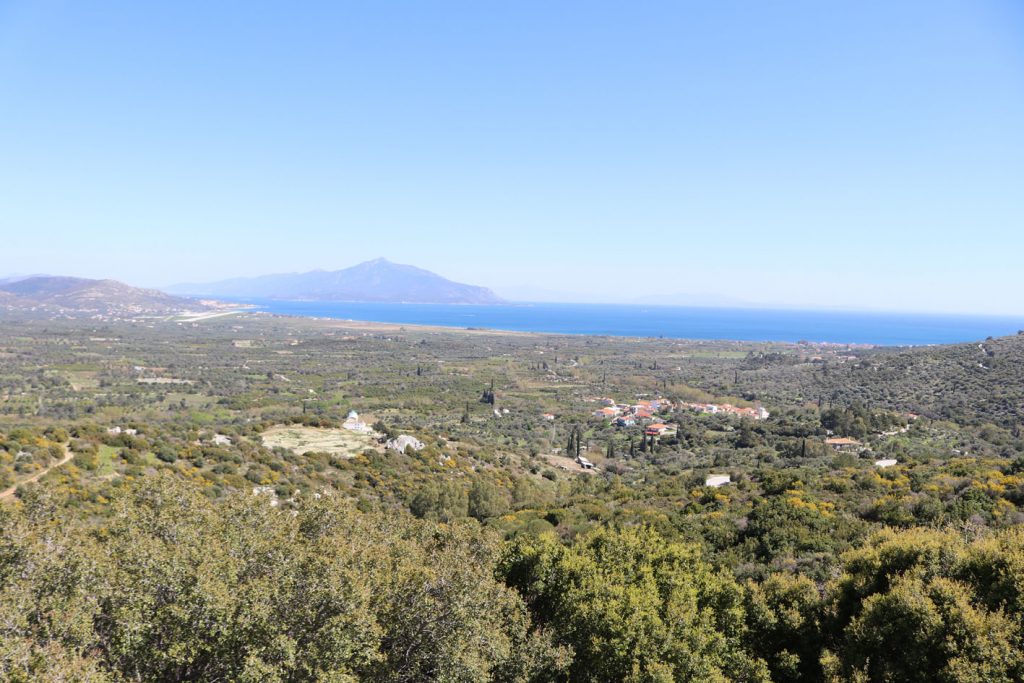The salinization of groundwater reservoirs is a widespread phenomenon in the Mediterranean, which is becoming increasingly dramatic due to the current climatic changes together with the steadily increasing demand for freshwater. Such salinization processes were commonplace in the past and have impacted civilization in a variety of ways. The cooperation project between Jan-Marc Henke from the German Archaeological Institute in Athens and Christoph Külls from the University of Lübeck on Samos is focused on the study of such processes and their effects on human activity over a period of almost 3500 years.
In front of the western flank of the city wall of the ancient city of Samos (today Pythagoreion) a small, today salty-brackish lake (Glyphada) is located. In Archaic times a sanctuary for Artemis was founded on its western bank. The spring rises from spring tuffa deposits that are several meters high and cover the slope for a length of approximately 10 meters. More recently, however, it only runs episodically after rainy winters.
Within the pond, hydraulic installations indicate the intention to separate fresh and salty water in different ponds in ancient times. Preliminary work has clearly shown that the water chemistry does not originate from seawater, which is also indicated by the topographical situation. Therefore the initial hypothesis of the project is that both – the morphological and archaeological situation as well – could point to its former significance as a source of freshwater, threatened by increasing salinization, which could also have affected other areas of the city.
By extracting and analyzing sediments, the future project aims at reconstructing the temperature and salinity records of pond water based on 13C/12C, 87Sr/86Sr stable isotope ratios and Mg/Ca ion ratio over the last 3500 years. These data are correlated with environmental and climatic conditions and changing land-use patterns. The reconstruction of the capacity of the spring and the salinization may contain a key to understanding hydraulic engineering measures, such as the aqueduct of the Eupalinos, the creation and abandonment of wells, and other measures to secure the water supply in the area of the ancient city of Samos and the modern Pythagoreion. Beneficiaries of the project will be archaeologists who work on water supply issues in the Eastern Mediterranean. Knowledge of a possible salinization crisis is also of interest for today’s water management on the island itself.



Project members and partners
Dr. Jan-Marc Henke (Director of the excavations at the Heraion of Samos, DAI-Athen)
Anna Androvitsanea M. Sc., TH Lübeck
Prof. Dr. Pavlos Avramidis, Professor für Sedimentologie an der Universität Patras (Griechenland)
Prof. Dr. Christoph Külls, Professor für Hydrologie und Internationale Wasserwirtschaft an der TH Lübeck
Prof. Dr. Ingmar Unkel, Professor für Umweltgeschichte und Umweltarchive an der Universität Kiel, Mitantragsteller des Exzellenzcluster ROOTS im Forschungsschwerpunkt „Socio-Environmental Cultural Change“, Leiter des Subclusters „Socio-environmental Hazards“
